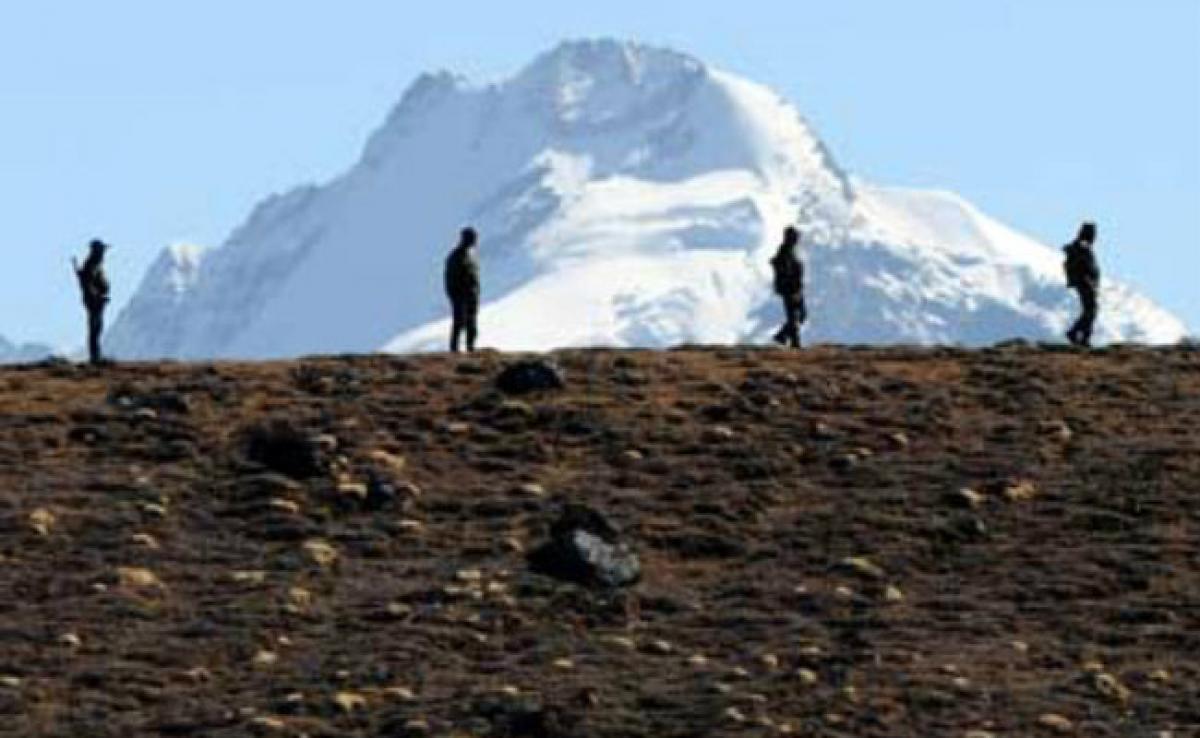Live
- Tumakuru implements emergency response system for women’s safety
- Sujeet Kumar elected to RS unopposed
- ACTO, two others held for Rs 4 cr fraud
- Adopt tech-based probe process: DGP Khurania
- Bhubaneswar: Four fraudsters held for operating fake gaming app
- Majhi asks new recruits to shun corruption
- Modi’s bold decision: Bommai hails PM
- Devotees experience normal rush at Tirumala amidst long queues
- Two BJP MLAs defy party decision to stage walk-out from Assembly
- Reality show contestant booked for misuse of explosives
Just In

China has said India should show through deeds its willingness to maintain peace at the border and claimed that 48 Indian soldiers were at Doklam area backed by a \"large number\" of troops at the border to halt Chinese attempts to build a road on its side of the boundary. \"If the Indian side truly cherish peace, what it should do is to immediately pull back the trespassing border troops to the Indi
China has said India should show through deeds its willingness to maintain peace at the border and claimed that 48 Indian soldiers were at Doklam area backed by a "large number" of troops at the border to halt Chinese attempts to build a road on its side of the boundary. "If the Indian side truly cherish peace, what it should do is to immediately pull back the trespassing border troops to the Indian side of the boundary," Chinese Foreign Ministry spokesman Geng Shuang said.
In a statement, Geng said the action of the Indian side amounts to that of "irresponsibility and recklessness."
He said that until Wednesday, "there were 48 Indian soldiers and one bulldozer" in Doklam area, describing it as illegal intrusion into Chinese territory.
India, however, says that the area belongs to Bhutan.
"In addition, there are still a large number of Indian armed forces congregating on the boundary and on the Indian side of the boundary," Geng said.
"No matter how many Indian border troops illegally trespassed the boundary and still stay in the Chinese territory, it will not alter the nature of severely violating China's territorial integrity and contravening the UN Charter. This incident is illegal under the international law. The Indian side should bear corresponding responsibilities," the spokesman said.
The Foreign Ministry had issued a 15-page fact sheet on Wednesday with maps and other details about the standoff since it began on June 16, saying 40 Indian troops stayed at Doklam till July end.
Geng repeated once again on Thursday that on June 18 about 270 Indian troops "advanced more than 100 meters into the Chinese territory to obstruct the road building of the Chinese side."
Reacting to Wednesday's External Affairs Ministry statement that the peace and tranquility of the India-China boundary constitutes the important prerequisite for the smooth development of bilateral relations, Geng said India should also show its words in "deeds".
"Indian side is always keeping 'peace' on the tip of its tongue. But we should not only listen to its words but also heed its deeds," Geng said in the statement.
It also accused India of sending troops to halt the road work without responding to advance notice about China's plans to build the road given twice earlier on May 18 and June 8.
"However, the Indian side didn't make any response to the Chinese side through any channel for over one month. Instead, it flagrantly dispatched armed forces carrying equipment to illegally cross the boundary to obstruct China's road building. This is by no means for peace," it said.
"The Indian border troops still illegally stay on the Chinese territory. Moreover, the Indian side is building roads, hoarding supplies and deploying a large number of armed forces on the Indian side of the boundary. This is by no means for peace," it said, claiming that it is "irrefutable" that the Indian troops illegally trespassed into the Chinese area.
"Under such circumstances, instead of deeply reflecting on its mistakes, the Indian side fabricated such sheer fallacies as the so-called 'security concerns', the 'issue of tri-junction' and 'at the request of Bhutan' as excuses to justify its wrongdoing," it said.
Referring to its diplomatic protests made in this regard, the statement said the "Indian side, rather than withdraw its trespassing troops and equipment, made unreasonable demands to China which demonstrated its lack of sincerity for resolving the incident. This is by no means for peace."
He said building a road was a normal activity of China on its own territory which is completely lawful and legitimate.

© 2024 Hyderabad Media House Limited/The Hans India. All rights reserved. Powered by hocalwire.com







